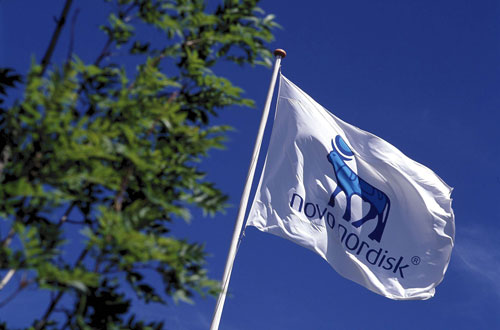Novo Nordisk to acquire metabolic disorders specialist Inversago Pharma for $1bn
10 Aug 2023
Clinical ResultAcquisitionPhase 1Phase 2

Preview
Source: PMLiVE
Novo Nordisk has said it will be acquiring Canada-based Inversago Pharma, a specialist in metabolic disorders, in a deal worth $1.075bn.
The transaction gives the Danish drugmaker access to Inversago’s lead asset, INV-202, a CB1 receptor blocker being developed to treat metabolic syndrome and its associated complications.
Inversago recently announced positive results from a phase 1b trial evaluating the candidate in 37 adults with features of metabolic syndrome.
Over a 28-day treatment period, clinically significant and progressive weight loss of an average decline of 3.5kg was shown for the INV-202-treated patients, compared with an average gain of 0.55kg for those receiving placebo.
The candidate has already advanced into mid-stage development for diabetic kidney disease, and Novo has outlined its plans to investigate the potential of INV-202 for obesity and obesity-related complications.
“This promising class of medicine pioneered by the Inversago team could lead to life-changing new treatment options for those living with a serious chronic disease and, in particular, may offer alternative or complementary solutions for people living with obesity.”
“We believe this combination will help unlock the full medical potential of our CB1 blockers and may one day expand treatment options for people living with metabolic syndrome, obesity and related complications,” he said.
The investment comes just days after Novo reported top-line results from a study evaluating its GLP-1 drug as an additional treatment for the prevention of major adverse cardiovascular events (MACEs) over a period of up to five years.
The trial, which enrolled more than 17,000 adults aged 45 years or older with overweight or obesity and established cardiovascular disease with no prior history of diabetes, achieved its primary endpoint by demonstrating a reduction in MACE of 20% for semaglutide-treated patients compared to placebo.
Semaglutide is already available in major markets for weight management under the brand names Wegovy and Rybelsus as a once-weekly injection. The drug suppresses patients’ appetites by mimicking an intestinal hormone called GLP-1, which is released after eating.
For more details,please visit the original website
The content of the article does not represent any opinions of Synapse and its affiliated companies. If there is any copyright infringement or error, please contact us, and we will deal with it within 24 hours.
Indications
Targets
-Drugs
Chat with Hiro
Hot reports
Get started for free today!
Accelerate Strategic R&D decision making with Synapse, PatSnap’s AI-powered Connected Innovation Intelligence Platform Built for Life Sciences Professionals.
Start your data trial now!
Synapse data is also accessible to external entities via APIs or data packages. Empower better decisions with the latest in pharmaceutical intelligence.





